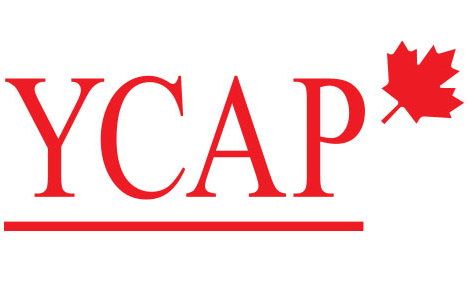
29 Apr April 2024 Panel Discussion: ICC Commission’s Report on “Facilitating Settlement in International Arbitration.”
Panel discussion of the ICC Commission’s Report on “Facilitating Settlement in International Arbitration” held in Montreal on April 9, 2024
– Author: Abbie Buckman
In July 2023, the International Chamber of Commerce (“ICC”) Commission published “Facilitating Settlement in International Arbitration” (the “Report”). The Report describes the techniques available to an arbitral tribunal operating under the ICC Arbitration Rules to facilitate dispute settlement. On April 9, 2024, the ICC organized a panel event in Montreal to share perspectives on the present and future role of arbitrators in facilitating settlement during arbitration proceedings.
Different legal cultures have different views on the appropriate role of an arbitrator in facilitating settlement, meaning that participants in ICC arbitrations coming from different legal cultures may have quite different reactions to an arbitral tribunal suggesting settlement or mediation. An arbitrator might understandably be hesitant to encourage settlement out of a concern about being exposed to a challenge or jeopardising the enforceability of her award. Despite this, the ICC has taken steps since 2007 to bring its position in line with changing attitudes towards the role of arbitrators in encouraging settlement. Since the ICC 2021 Arbitration Rules, arbitrators are empowered to “encourage the parties to consider settlement.” The Report recognizes that the traditional skepticism of arbitral involvement in settlement has fallen away. The conversation has shifted from whether tribunal should take steps to facilitate settlement, to how that should be done.
The Report identifies techniques that can be used by arbitrators to discuss settlement with the parties, and encourage it where appropriate (noting that not every technique will be appropriate in every case):
- First case management conference – This is the ideal time for the arbitral tribunal to take steps to ensure that the procedural timetable includes multiple opportunities to consider settlement. Doing so can contribute to the parties’ trust in the arbitral tribunal’s neutrality if the topic of settlement is subsequently discussed.
- Mid-stream case management conferences – Mid-stream conferences can be built into the procedural timetable after key stages in the arbitration, such as after the exchange of arguments, after document disclosure, or after a tribunal decision on a preliminary issue. As the parties’ positions on settlement are likely to evolve as the arbitration unfolds, these mid-stream conferences allow the arbitral tribunal to check in with the parties. A mid-stream conference can be similar to “Kaplan Hearings,” where parties are asked by the tribunal to present skeleton arguments of their case in a small hearing before the main hearing as a way for the tribunal and the parties to assess the strengths and weaknesses of the case on an ongoing basis.
- Bifurcation – Bifurcation offers the possibility to isolate key issues that could be decided preliminarily, or separate issues that are ripe for settlement from issues that are not. Doing so might contribute to the parties’ openness to settling the totality of the dispute if a certain collaborate momentum is established. Or, the panel pointed out, it also risks hardening the parties in their positions if they are not satisfied by the outcomes of the early decisions.
- Mediation/settlement windows – The norms and expectations of an arbitrator’s role in identifying a window when the dispute becomes “ripe” for mediation or settlement vary across legal cultures, requiring delicacy on the part of an arbitrator. The Report recognizes the success that mediation often has as an ADR tool in commercial settings, and its potential to be incorporated into arbitral proceedings, either in parallel or as a tool integrated into the arbitration. The possibility of mediation can be raised by the parties or the tribunal, and it can be offered through the ICC or it can be arranged independently by the tribunal. The panel noted that arbitration clauses can be drafted to allow for mediation to happen alongside arbitration, or to allow the arbitral proceedings to pause for mediation at any time.
Discussion
The panel agreed that there is a role for the tribunal to raise the topic of settlement or encourage it between the parties, to the extent the parties want it, but that it must be done with sensitivity by an arbitrator experienced enough to ascertain the parties’ positions. The potential benefits to the parties of a well-facilitated settlement can be immense.
The panel acknowledged that a suggestion from the arbitrator that the parties consider settlement might carry more weight for the parties internally than if the issue is raised by counsel.
The panel also shared their own experiences with arbitral tools designed to adapt the procedure to the specific requirements of the case at hand:
- An arbitrator might have an experienced mediator ready “on hand” to offer to the parties if the dispute becomes ripe for mediation, to avoid any potential delays of finding an acceptable mediator;
- An arbitrator might seek the parties’ consent to have an expert appointed to assist the arbitrator with a dispute of a highly technical nature and prepare a report overseen by the arbitrator;
- An arbitral panel might build post-hearing briefs into the timetable, allowing the tribunal to pose outstanding questions to the parties and perhaps serve as an opportunity for the tribunal to cautiously signal weaknesses to the parties without raising the issue of settlement explicitly;
- A dispute resolution clause might empower the tribunal to name a panel of experts to decide certain issues, perhaps on a preliminary basis.
The panel was chaired by Martin Valasek and comprised of Marie-Claude Martel, Michelle Taylor, and Stephen Drymer. It was hosted by Marek Krasula of the ICC.
